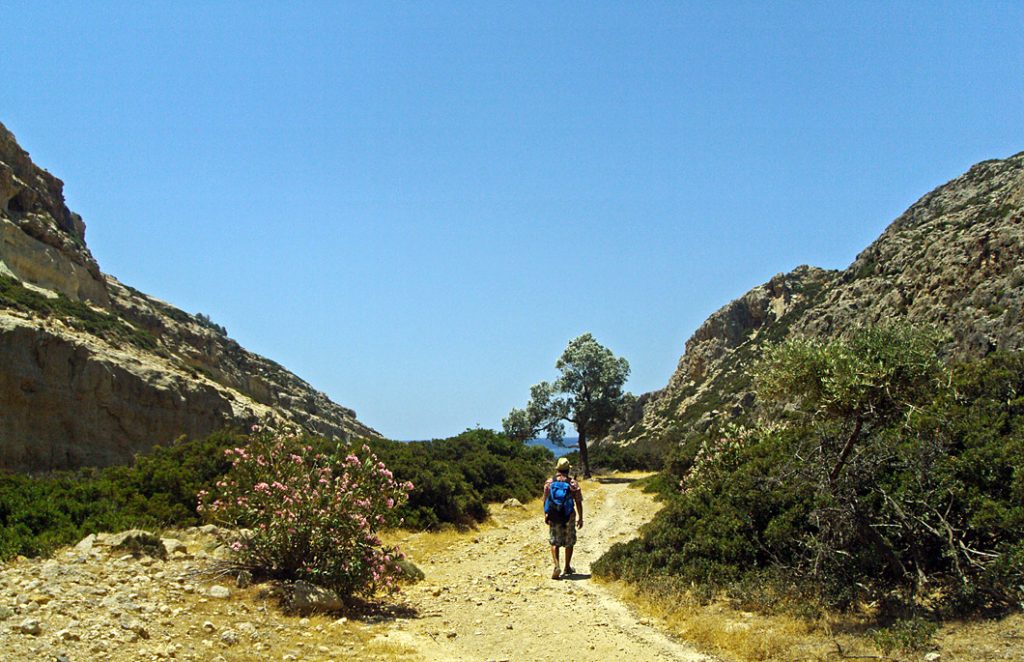Up to 2.2 billion euros per year in losses due to the climate crisis – Extension of the tourist season and alternative tourism can offset the losses.

*The Battle of Tratsa
A “reinforcement” against the effects of the climate crisis on the tourism sector can be both the extension of the tourist season as a key adaptation tool that creates opportunities and the transition of the tourism sector to a model of sustainable and resilient development. This is suggested by the scientists who prepared the study on the economic impacts of climate change on Greek tourism, which was carried out on behalf of the Foundation for Economic and Industrial Research (IOBE).
Specifically, the study estimates that losses could reach up to 2.2 billion euros per year, while around 38,000 full-time jobs will be lost annually, given that the summer peak in traditional tourist destinations in the country is expected to shrink due to the extreme temperatures brought about by climate change. However, with targeted interventions to extend the tourist season and develop alternative forms of tourism, it is possible to offset the losses and create a marginal increase in GDP by 228 million euros and 6,600 new jobs per year.
Risk to the sustainability of Greek tourism
Climate change and the increase in the frequency of extreme weather events are emerging as a structural threat to the Greek economy. The pressures are also reinforced by the continuous increase in demand for the Greek tourism product. This is because, although economic figures may be significantly strengthened, tourist activity is concentrated mainly in the summer months, which has significant impacts on the production system, infrastructure and the natural environment of the host areas.
The intense seasonality, as well as the geographical concentration of tourist activity, lead to intermittent and unstable employment, to the inadequacy of infrastructure and services during peak periods, as well as to the uneven distribution of benefits at the local and regional level. Furthermore, as the study points out, “the intensity of climate change, which manifests itself through the increase in average temperature and the frequency and intensity of extreme climatic phenomena, may limit the sustainability of Greek tourism, altering its qualitative characteristics and, by extension, arrivals and stays in tourist destinations”.
15.6% decrease in overnight stays
The study used the Tourism Climate Index (TCI), an internationally recognized tool for assessing the suitability of the climate for tourism activities, taking into account parameters such as temperature, humidity, sunshine, rainfall and wind speed.
The researchers use the Bank of Greece’s forecast scenarios, based on the TCI, in order to assess the impacts of climate change on the seasonal distribution of tourism demand. According to the available scenarios, some tourist areas of the country are projected to suffer a significant reduction in TCI from high levels (TCI>80) to marginal climate conditions (40<TCI<50) by 2070.
As it turned out, a reduction in TCI by 10 points in summer is expected to reduce overnight stays by 15.6%, while on the contrary they are expected to increase in all other seasons of the year (10.7% in spring, 22.6% in winter, and 27.8% in autumn). The above leads to a reduction in total tourist expenditure by 1.2 billion euros in summer, and an increase by 1.5 billion euros in all other seasons.
Taking into account the multiplier effects of tourism with other sectors of the Greek economy, the change in climate conditions in this scenario may lead to a loss of approximately 2.2 billion euros to Greek GDP per year, with a loss of approximately 38,100 full-time jobs and fiscal revenues of 306.7 million euros.
In fact, in individual regions of Southern Greece the impacts may be more pronounced as the decrease in the TCI index during the summer period is predicted to be significantly more pronounced, with a typical example being the Western Peloponnese where the estimated drop in the TCI during the summer months is expected to exceed even 15 points.
Disinvestment risks
The decrease in demand for tourism products, especially during the summer season, may lead to a partial shutdown of existing tourism infrastructure, limiting the degree of utilization of invested capital and exerting downward pressure on prices. The resulting decrease in revenues, combined with the increase in operational risk for tourism businesses, may lead to a new cycle of disinvestment and further contraction of economic activity.
The findings of the study reinforce the need for a strategic extension of the tourism season beyond the summer peak, given that, due to climate change and rising temperatures, the climate is becoming more suitable for tourism outside the tourist season. According to the results of the quantitative analysis, the redistribution of tourism demand within the year is expected to fully compensate for the losses foreseen for the summer season, leading at the same time to a mild strengthening of the basic macroeconomic figures. In particular, an additional contribution of around 228 million euros per year to the GDP, the creation of approximately 6,600 full-time jobs and an increase in fiscal revenues by 53 million euros is estimated.
Alternative forms of tourism
The extension of the tourist season requires the strengthening of forms of tourism that present less intense seasonality and potentially milder environmental impact. These include cultural, ecotourism, sports tourism, city break tourism and business-conference tourism.
A common feature of alternative forms of tourism is their ability to develop within the urban or semi-urban fabric and outside the summer peak, contributing to the de-escalation of tourist pressure, the better utilization of human resources and the broader upgrading of the tourism product.
The tourism sector is one of the most strategic sectors of the Greek economy, contributing approximately 18% to the country’s GDP and creating more than 800,000 direct and indirect jobs, taking into account its interactions with other sectors of the Greek economy. The IOBE study on tourism was prepared by Konstantinos Kontos, Sylvia Koulouri, Yakinthis Pountourakis and Elias Demian, who also coordinated the research team. The scientific editor was the General Director of IOBE, professor at the Athens University of Economics and Business, Mr. Nikos Vettas.
Source: ot.gr
